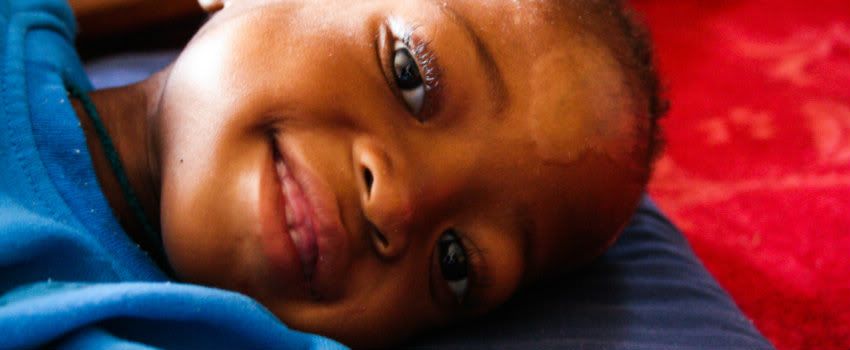Half-way through the day I jotted in my notebook: “A good day?” It was a hopeful thought encouraged by the way the day was unfolding and the 20 healthy kids I had just seen. A week later, I am tempted to scratch it from my notebook.
I was on outreach in a remote village helping to train a village-health worker as part of a new TTL initiative to train “first-responders” in the community. We left the TTL compound extra-early for a 2 ½ hour drive followed by an hour-long hike over two mountain ridges and finally reached the village around 11 am, tucked away in the almost-green valleys of the San Martin area.
After the first two hours in the village, we were indeed having a good day. One by one, children arrived at the small home of an elderly woman named Mateboho, anointed as the Village Health Worker by the government sometime in the 1980s, but since then mostly ignored. TTL’s new program aims to turn this woman and others like her into functioning tools in the war against malnutrition and HIV/AIDS.
With our help, Mateboho weighed and measured each of the kids and we discussed what the measurements meant with her. One kid looked healthy, but was actually a bit underweight for her age. TTL will provide her family with food. Another little boy looked a little underweight, but actually weighed-in at a healthy 9 kg.
Twenty kids down, and only one or two were underweight. None had tested HIV positive, and all seemed in good overall health. A good day.
As we started to pack our bags to depart, Mateboho said we needed to see one more child. “Very close,” she assured us, and we walked to a neighbor’s house where we found our last child of the day.
The mother, covered in heavy blankets, lay on a thin pad against the wall while the grandmother filled in the details. Her daughter has TB, is HIV positive, and delivered a baby boy two days earlier. The child was 2 months premature. We crept gently across the room to take the child from the mother’s arms.
With the child swaddled in blankets, we did not yet understand what 2 months pre-mature really meant. But as the blankets were removed, the grim reality of a preemie in rural Africa stared us in the face. The child looked hardly alive. Eyes shut. Yellowed skin. Wrinkled, unformed features.
After little discussion and with little fanfare, the grandmother packed a few belongings for her daughter and grandson, and we headed back towards Mokhotlong and the hospital. The mother, 2 days postpartum and wheezing with TB, made the trek with us back over the two mountain ridges. A 2 ½ hour drive later, I held the child in my arms as we admitted the family to the hospital and said we would be back the next day to check on them.
Two days later, we heard from the hospital that the child, Bokang, had died. TTL drove the mother back to her village, child in arms, and she hiked back to her village to continue recovering from TB.
Maybe I was naive, but I thought that if we got the child to the hospital then it had a fighting chance. Unfortunately, for some children, it seems that it really is too late. Our involvement with the Village Health Workers started in hopes of avoiding this kind of crisis—when women and children in remote villages are not reached in time. Hopefully, with the help of the VHW we can find the next pregnant woman before she delivers. But until such partial redemption occurs, it seems certain that it was not a good day.
This post by Reid.


1 comment:
Post a Comment